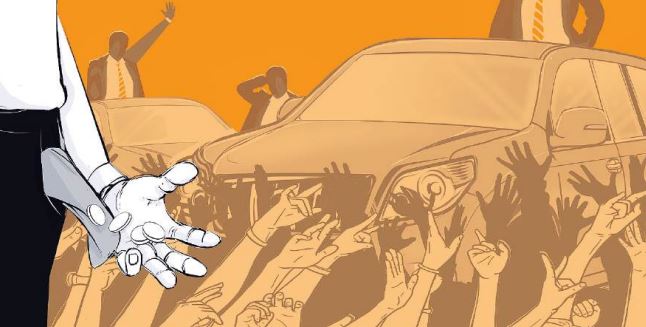
MUGA: Kenya’s puzzling fetish for coffee
Kenya was – then as now – also a significant coffee grower
Most MPs have no interest in coming up with schemes that will help their constituents break cycle of poverty
In Summary

Audio By Vocalize

There was a reason for this. I lived in Mombasa at the time, and it so happens that there is nothing Kenyan MPs enjoy more than to spend a week at the coast at taxpayers’ expense, attending a 'workshop' or 'seminar' or some other such event.
So, if an MP you already knew asked you to drop by and have coffee with him at the beach resort where a group of them were attending one of these official events, you would invariably find that he was in the company of other MPs, whom you would then get to know.
And a few months later, one of these other MPs might then ask you to drop by, when a parliamentary committee he belonged to was at the Coast, and you would then meet yet more MPs.
And so on, till in the end you got to meet quite a number of the “waheshimiwa”, and could make generalisations about Kenyan MPs with a degree of confidence.
One such generalisation – and one many Kenyans find it hard to believe – is that most MPs are very nice people, and just the kind of people you would enjoy chatting with at a breezy outdoor restaurant, with a view of the Indian Ocean.
While no doubt a certain amount of election rigging routinely takes place in this country, most MPs are validly elected. And yet the very Kenyans who vote them in will usually insist that they are a bunch of “M-Pigs” only concerned with gorging at the trough of public funds.
But all the evidence I have from personal experience is that the average Kenyan MP is a really nice person. So, I stick to my generalisation.
The second generalisation is that none of these MPs has it as part of their agenda to bring some level of prosperity to their constituents. They mostly consider their role as firefighting.
What do I mean by firefighting? Well, just the usual things we associate with MPs, such as helping with medical bills when a patient is being held hostage at a hospital while his family members run around trying to raise money to pay the medical bill.
From this I came to the sad conclusion that however congenial most MPs may be, they all the same prefer their constituents to remain poor, rather than see them rise from poverty into the middle class.
For I have known of corporates which, when they set out to undertake some form of mass retrenchment of staff (in the face of increased automation or some other such factor) went to great lengths to train their departing staff in how to set up small businesses, so that they might continue to live productive lives outside the shelter of steady employment.
But when it comes to politicians, there is this question I often used to ask the MPs I got to meet for the first time: “What plans do you have for improving the lives of the good people who voted for you?”
And they would reel off a long list of ‘development projects’ of just the kind I have categorised as firefighting. But at no point did they ever specify anything that might be categorised as “economic empowerment”. At most they would speak of the many loans available for setting up small-scale businesses: a type of loan notorious for its very high default rate.
So how do you reconcile this odd fact that most elected leaders seem to be genuinely nice people, and yet show no interest at all in coming up with schemes which will help their constituents break the cycle of poverty that holds most of these constituents in an iron grip?
My theory is based on something often said to explain racism in the US: “This problem is systemic”.
By which they mean that the social ecosystem imposes certain racist presuppositions on even the nicest people, so that they end up being no different from those who hold racist views out of the malice they feel towards racial minorities.
In the same way, it is so much easier to win an election where the voters are poor, than winning a race where the voters are reasonably well off and educated, that most Kenyan MPs do not give much thought to any serious programmes of economic empowerment.

Kenya was – then as now – also a significant coffee grower